Rio+20 Update for June 19, 2012
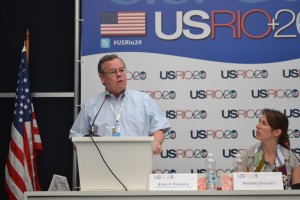 Message from the Chair, Brian Flannery:
Message from the Chair, Brian Flannery:
Greetings from Rio De Janeiro, as the Rio+20 negotiations conclude agreements on green economy and a host of other areas.
Photo above: Brian Flannery, Chair of the International Business Green Economies Dialogue moderates a panel at the US Government Center at Rio+20.
Based on successful dialogues in Tokyo and Washington, the Green Economy Dialogues project was honored and delighted to be invited to conduct side events at the national pavilions of Japan and the United States.
Sunday’s session at the Japan Pavilion, moderated by Hiroyuki Tezuka (JFE Steel and Keidanren) featured several speakers from our Tokyo dialogue, including:
- Professor Ryokichi Hirono (Seikei University) who shared his views on the role that business will need to play, and
- Kazushige Nobutani (Director, Global Environmental Affairs Office, METI) who described the focus of Japanese government and business on developing and deploying advanced technologies globally.
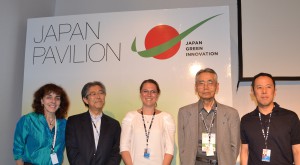 Left: panelists left to right: Norine Kennedy, USCIB; Hiroyuki Tezuka, JFE Steel and Keidanren; Asa Ekdahl, Worldsteel Association; Professor Ryokichi Hirono, Seikei University; Kazushige Nobutani, METI.
Left: panelists left to right: Norine Kennedy, USCIB; Hiroyuki Tezuka, JFE Steel and Keidanren; Asa Ekdahl, Worldsteel Association; Professor Ryokichi Hirono, Seikei University; Kazushige Nobutani, METI.
At Monday’s session in the U.S. Pavilion, moderated by Brian Flannery (Chair Green Economy Dialogues), representatives from sponsors and participating associations provided insights from the entire set of dialogues. They addressed green growth, green jobs, investment, innovation and the role of consumers among other subjects.
Nathalie Girouard, who spearheads the OECD’s programs on green growth, described their programs in green economy going forward and invited input from the project to the initial meeting of the OECD’s Green Growth Forum. Ms. Girouard’s PowerPoint presentation can be viewed here.
At both these events, speakers highlighted:
- Greening economies should be viewed in the broader context of sustainable development, contributing to economic and social development as well as environmental protection and improvement;
- Economic growth will be essential to pursue greener outcomes;
- Green jobs and actions should be based on economy-wide considerations—consequently, it is not helpful to distinguish between green jobs and others; all jobs can contribute to greener outcomes.
- Innovation not only in technology, but also in services, management, business models and finance can help to meet challenges and pursue opportunities.
- Business will be the major actor to develop and deploy innovative solutions on a global scale; governments will need to create enabling frameworks for business to act; and public-private partnerships can speed progress.
Below: Lawrence Gumbiner, Deputy Assistant Secretary of State, Bureau of Oceansand International Environment and Science, US State Department addresses the panel and participants at the Green Dialogue session held at the US Government Center.
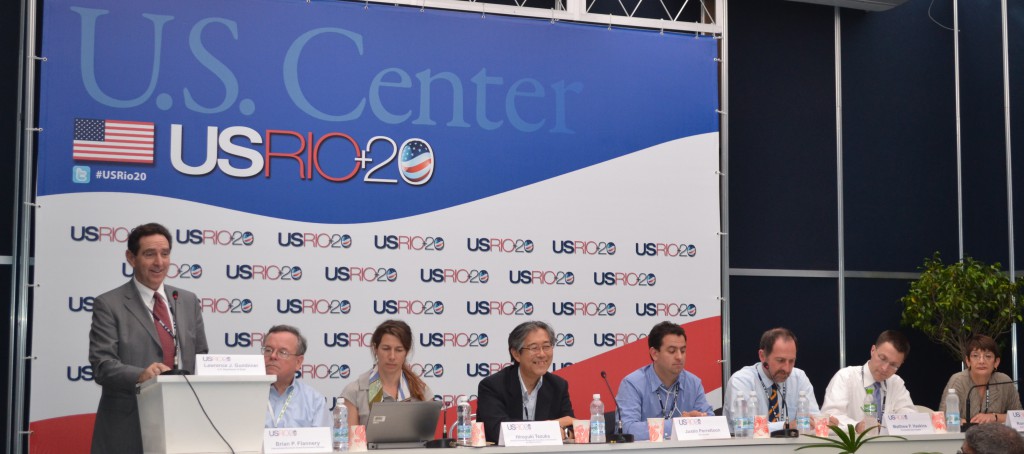
The Green Economy Dialogues help business communicate our views, better understand concerns of others, and contribute to effective ways forward to promote greener growth in the global marketplace. We are grateful to Japan and the United States for the opportunity to continue the dialogue.
Interested readers can view a a recording from the webcast of the event at the US pavilion.
Rio+20 Outcome Document: Our Common Vision
JUNE 18, 2012: Video Webcast of Green Dialogue panel at the United States Government Center at Rio+20
Part 1 of Webcast:
Part 2 of Webcast:
JUNE 15, 2012: Rio+20 Dialogue Days, June 16 – 19
The U.N. and the Government of Brazil have organized Dialogue Days here in Rio to collect stakeholder input on several Rio+20 green economy issues discussed in the International Business Green Economy Dialogues. These Dialogues will generate content to be communicated to Heads of Government attending Rio+20 and included in the Rio+20 outcome.
The Dialogue Sessions cover 10 themes::
– Unemployment, decent work and migrations
– Sustainable development as an answer to the economic and financial crises
– Sustainable development for fighting poverty
– The economics of sustainable development, including sustainable patterns of production and consumption
– Forests
– Food and nutrition security
– Sustainable energy for all
– Water
– Sustainable cities and innovation
– Oceans
The Rio+20 Dialogues use on-line voting to identify the top ten options for action in each of the thematic areas. Further voiting by the panelists and those attending the Dialogues then choose the 3 priorities in each area that will be communicated to the
We will continue to report on relevant aspects of the Dialogue Days during their duration from June 16-19th.
JUNE 14, 2012:
UN DESA highlights crucial elements of outcomes at Rio+20, including Green Economy, Corporate Sustainable Reporting, and Means of Implementation
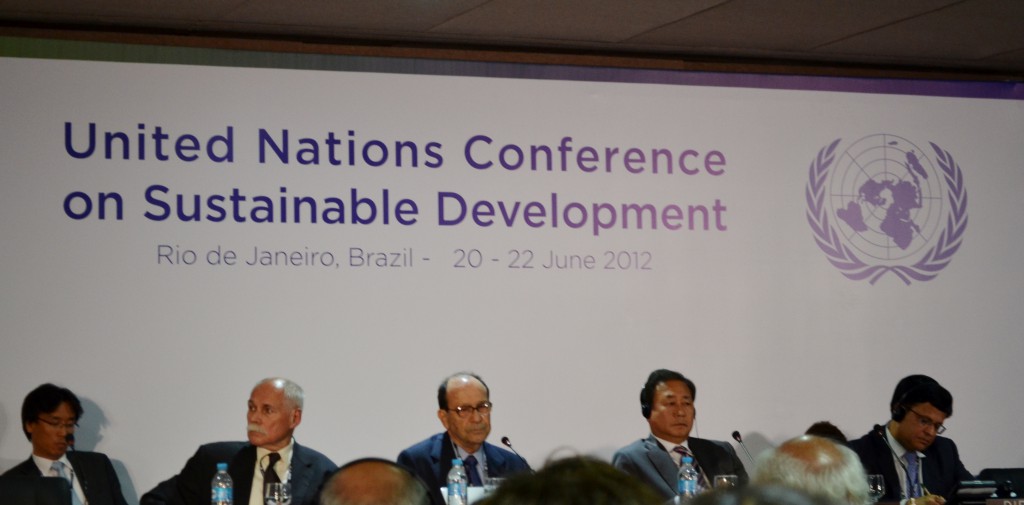
In a briefing for stakeholders attending Rio+20 on June 14, Nikhil Seth, Head of the U.N. Department for Environment and Social Affairs (UN DESA) flagged what he believed would be important elements of the outcomes of Rio+20. Given the unfinished nature of the negotiations, this is not definitive, but in light of his role, his ideas are worth noting:
1. Clear statement of the importance of Major Groups to sustainable development.
2. Corporate sustainable reporting
3. Green Economy for sustainable development
4. Adoption of the 10 year framework on sustainable consumption and production
5. New sustainable development institutions and strengthening other institutions within the context of sustainability.
6. Food security issues with regard to sustainability
7. An accountability framework for voluntary commitments
8. Means of implementation in the areas of financing and technologies
9. An Ombudsman for future generations
10. Sustainable Development Goals
11. Beyond GDP approaches
Looking ahead, we are in the final day of the Preparatory Committee meetings, with extensive disagreement remaining on financing, technology, green economy and sustainable development goals, among others. Tomorrow, Brazil, as the host country, will assume leadership of the negotiations.
JUNE 13, 2012: Enabling and scaling up innovation in the private sector has been underscored as an important element of greening economic activity in meetings of the International Business Green Economies Dialogue.
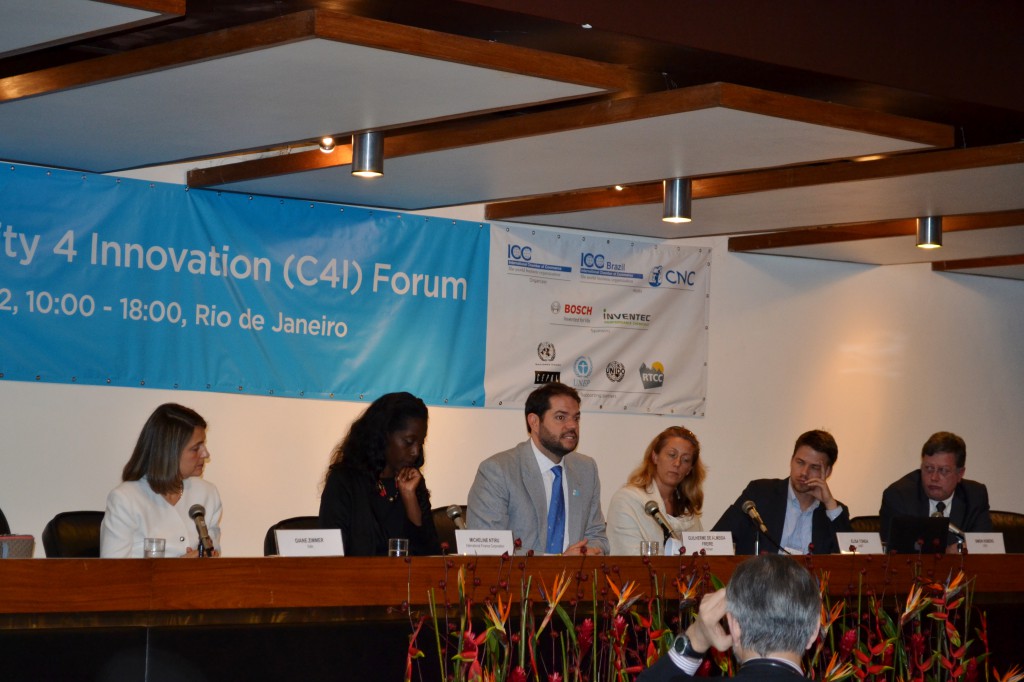
Today, the International Chamber of Commerce and its Brazilian National Committee, along with a host of sponsors and partners, organized a “Creativity 4 Innovation (C4I) Forum”. The Forum was hosted by CNC and the International Chamber of Commerce of Brazil in downtown Rio de Janeiro.
The full day agenda covered several panels covering:
1. The Rio Debate: Why green growth needs to be driven by business
2. Inspiring solutions for sustainable societies
3. Investment and financing for green growth
4. Greening the value chain
The panelists and audience included representatives from business, UN and government, NGOs and academia. During the day, various panelists discussed case studies and approaches to green growth.
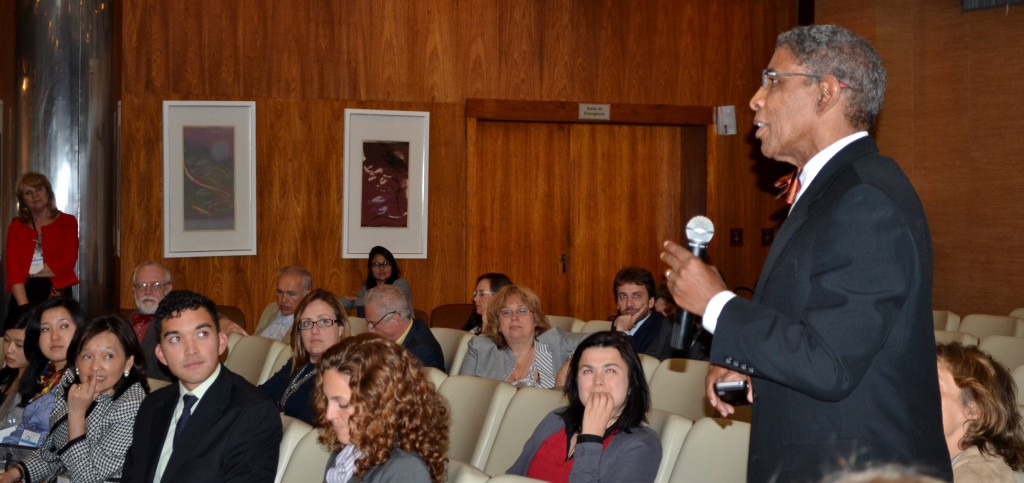
Clifford Henry of Procter & Gamble (pictured above), Chair of USCIB’s Corporate Social Responsibility Committee made several recommendations during the day, including:
1. Taking a holistic approach and conducting a life cycle analysis when evaluating options in order to avoid solving one environmental opportunity while creating another.
2. Going beyond philanthropy and utilizing the “UN Guiding Principles for business and human rights” when implementing solutions for sustainable societies.
3. Encouraged for use of P&G’s open source “Supplier Sustainability Scorecard” as a tool in greening the supply chain. P&G’s experience has been that 55% of their top suppliers have reduced their environmental footprint and 25% have presented to the company innovative solutions for environmental challenges.
Clifford also made a special mention of P&G’s Brazilian, Chinese and Indian suppliers who have made the greatest improvements in reducing their environmental footprint.
JUNE 12, 2012: International Business Green Economy Dialogues Project in Rio de Janeiro for Rio+20
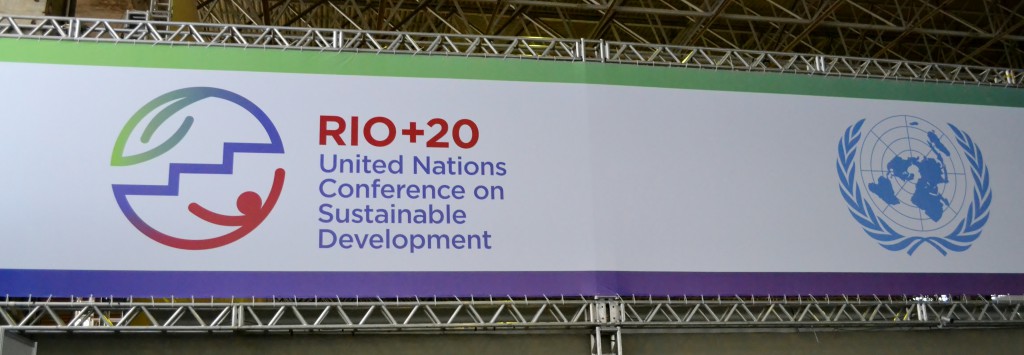
Setting the Stage for International Cooperation for Green Growth and Sustainable Development
The International Business Green Economy Dialogues Project is on hand for the Rio+20 meetings from June 13 – 22. Follow us during this historic U.N. meeting, as we continue to bring business perspectives on policies and approaches that work in global markets, and can be ingrained in public and private sector bottom lines.
We will be hosting side events on:
– Sunday, June 17th, 12:20 pm – 1:50 pm, hosted by Keidanren at the Japan government pavilion, Parco de Atletas.
– Monday, June 18th, 11 am – 12:30 pm, hosted by USCIB at the U.S. government pavilion, Parco de Atletas.
To RSVP, please email Kira Yevtukhova (kyevtukhova@uscib.org) as soon as possible.
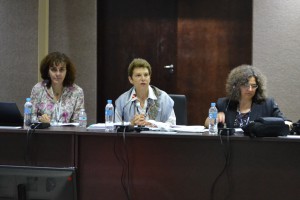 We will also take part in a host of events that explore practical approaches to enable and scale up green innovation and investment by both public and private sectors.
We will also take part in a host of events that explore practical approaches to enable and scale up green innovation and investment by both public and private sectors.
